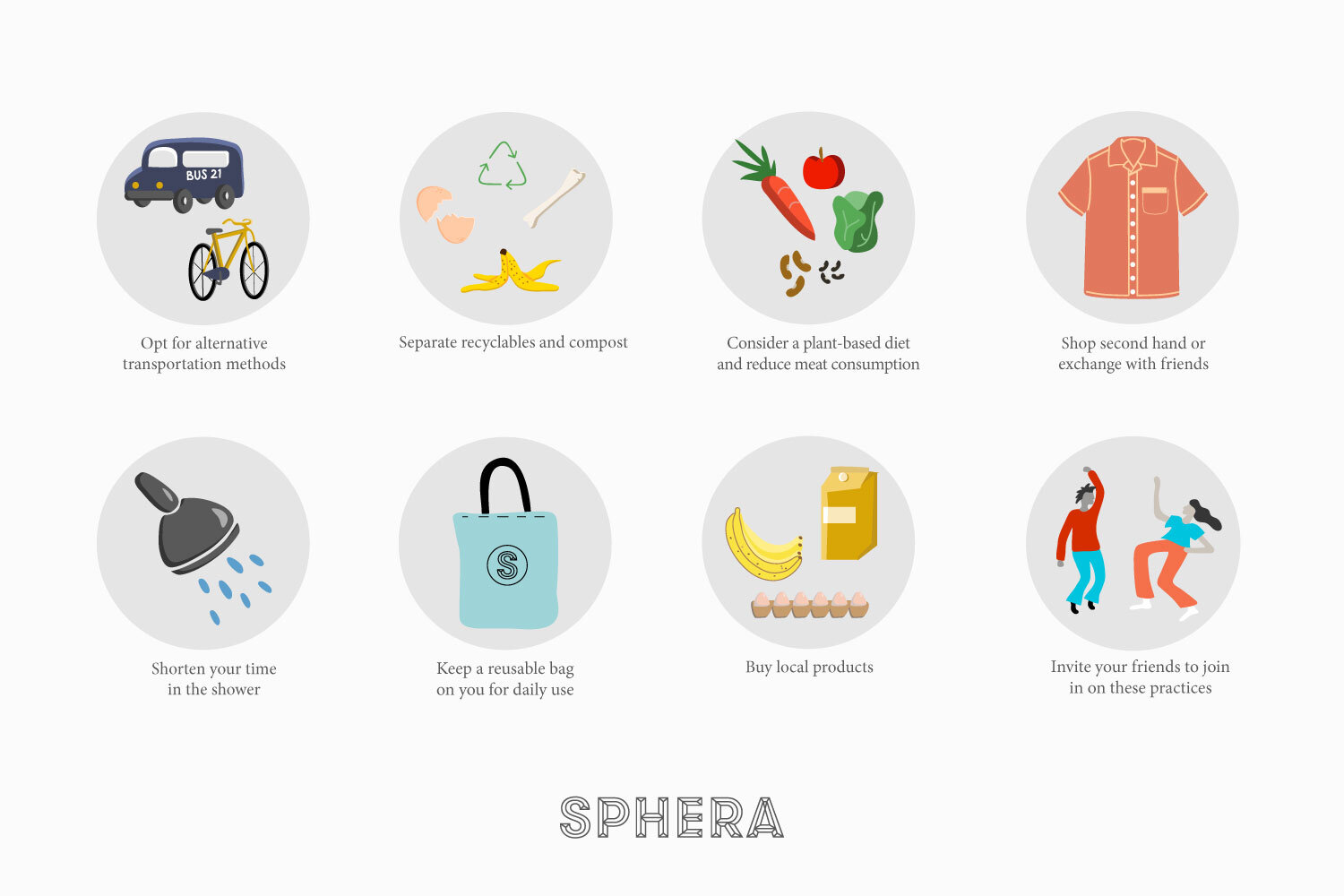From Sustainable to Regenerative
We as humans are part of a complex system along with our natural surroundings. Everything we need for our survival and wellbeing is either directly or indirectly dependent on interactions with the environment.
Ecosystems in Pico Blanco, Costa Rica
Let’s talk about sustainability
Sustainability is the capacity maintain something over time. It is based on the principle that humans and nature coexist, keeping natural systems in balance for present and future generations.
With sustainable development the aim is to continue to satisfy human needs while emphasizing the reconciliation between economic wellbeing, natural resources, and society, preventing the possibility of compromising life on the planet and the excessive consumption of natural resources.
The Three Pillars of Sustainability
As living beings, we evolve and interact on a living planet. Everything is interconnected. In order to reach some sort of ecological equilibrium, sustainability cannot only be about environmental consciousness; social equity and economic prosperity must also be a part of this conversation. These three areas in human development are known as the three pillars in sustainability.
Economic sustainability is responsibly managing and consuming resources for human wellbeing and economic growth. Social sustainability is human rights, working towards a common good and promoting social participation. Environmental sustainability, as the third pillar, aims for compatibility among human activity and the conservation of biodiversity.
How to be a more sustainable business
Track water and energy consumption as well as waste that is produced
Manage waste, both recyclables and non recyclables
Encourage the use of bicycles, public transportation and carpooling to get to and from work
Promote composting and collect food waste at work
Reduce the use of paper
Choose local and sustainable suppliers
How to be more sustainable at home
Use public transportation or a bicycle
Separate waste so they can be recycled correctly
Collect food waste and compost at home
Grow a garden if you have the space
Unplug appliances that are not in use
Replace the use of plastic with recyclable glass containers
Take advantage of natural light and turn off the lights when they are not needed
Daily practices to reduce consumption
From sustainable to regenerative
It is important to learn about sustainability in order to move towards a regenerative practice. In sustainability, we embody a neutrality where we are neither subtracting nor adding to the environment. In regenerative practices we add value.
In regeneration, we work to reverse the degradation of nature and return or add back resources. The goal is to repair our damage and facilitate the conditions so that life on the planet can recover, flourish and be more resilient. We improve our quality of life, relationships, the way we feed ourselves, our culture, and of course, our environment and landscapes.


